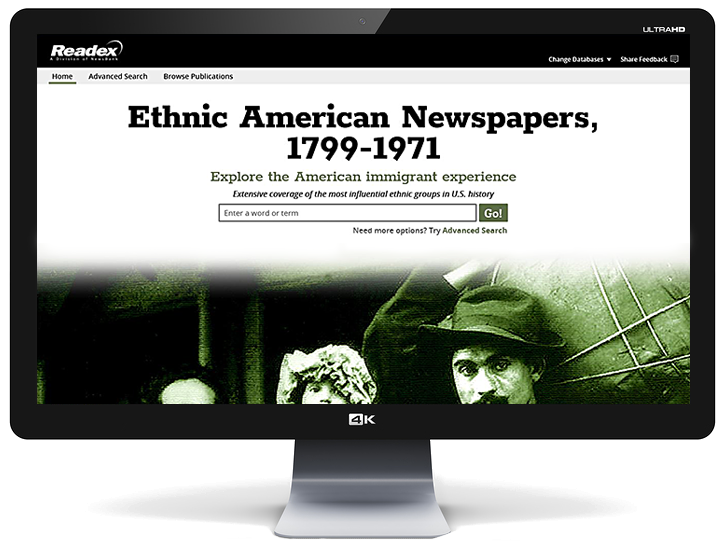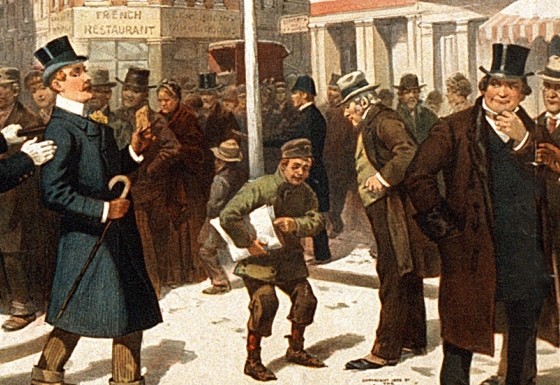"Outstanding Academic Title, 2013"
— Choice (January 2014)
"... prior to the electronic age, newspapers provided the most up-to-the-minute coverage of events. Therefore, when doing historical research, newspapers remain one of the most valuable primary resources. When followed over time, newspaper articles provide chronology, clarify why an event occurred, and may include quotations, statistics, photographs, editorial coverage, and a deep investigation into an event's immediate context. This explains the distinctive value of Ethnic American Newspapers from the Balch Collection. Presently, it comprises 55 titles originating from 12 states (all US regions are represented), with some German and French language titles. This database offers material that would be extremely difficult or even impossible for researchers to locate elsewhere. Readex, a division of NewsBank, has been a leading publisher of unique primary source material since 1984, when the company was invited to publish the Early American Imprints series, e.g., Series I: Evans (1639-1800) (CH, Nov'04, 42-1269), and Series II: Shaw-Shoemaker, 1801-1819 (CH, Sep'11, 49-0028). This series provides comprehensive coverage of early American history, culture, and daily life through books, pamphlets, and broadsides. Ethnic American Newspapers is of unparalleled value because it gives researchers insight into American history, culture, and life from perspectives one will not find in the mainstream. For example, a search for "know nothing party" (a fringe political party in the mid 19th century) returns a range of opinions from the Jewish community, the Irish-American community, and others. ...
"Ethnic American Newspapers is very user-friendly and easily navigable, even by novice researchers. The export, e-mail, printing, and related features are clearly identified, and these functions are readily accomplished with only one mouse click. Users may browse by era, begin a simple search, or create a more complex algorithm by selecting from clearly marked tabs, which limit results by article type, language, place of publication, newspaper title, or dates/eras. Search history is saved until cleared--a simple but invaluable tool, particularly when doing historical research, where the selection of key terms may be vastly different. Summing Up: Highly recommended. Lower-level undergraduates and above."
-- D. W. Bilal, Indiana University-Purdue University, Indianapolis, in Choice (May 2013)









































